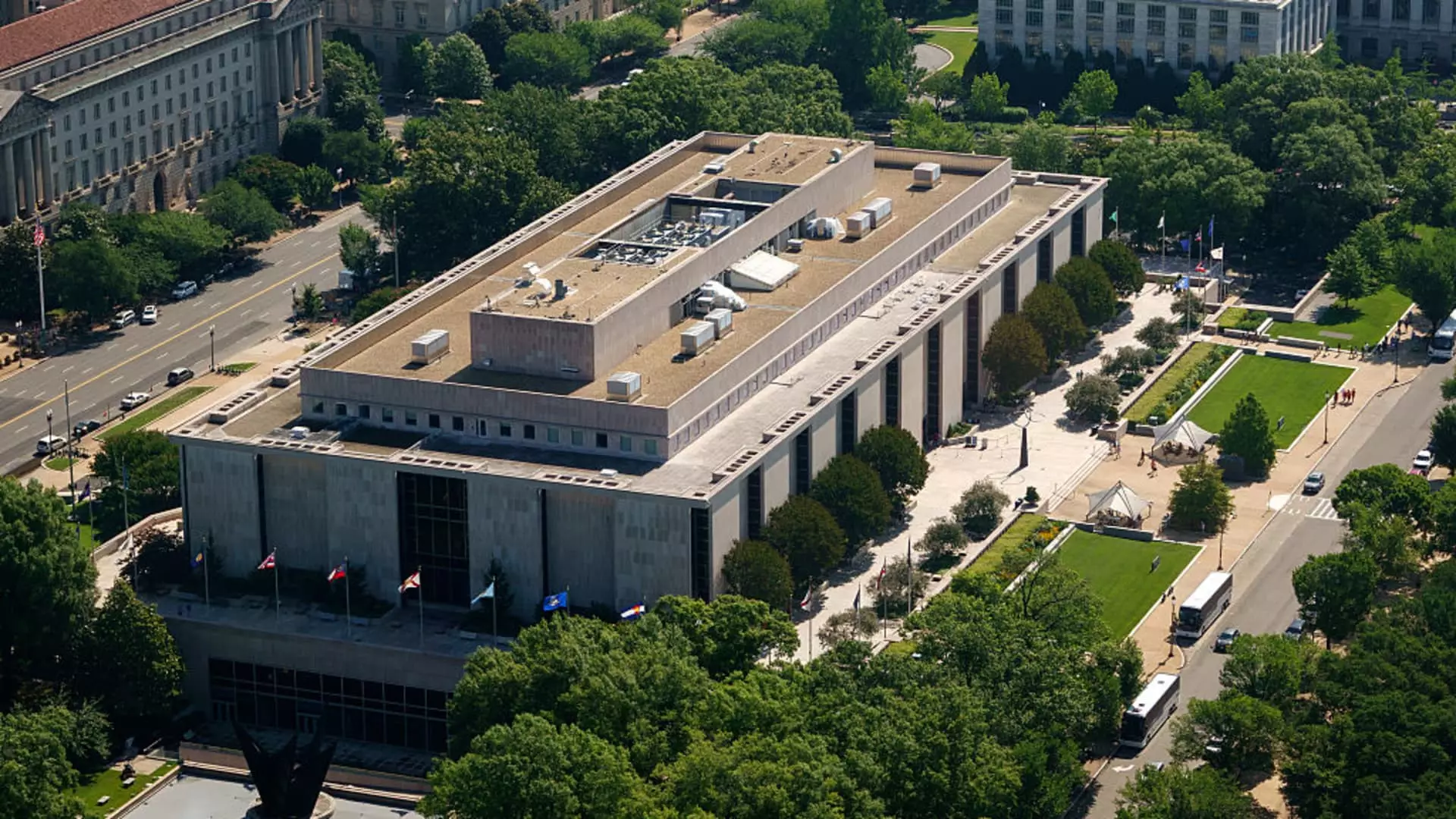In recent years, the cultural landscape in America has shifted from a celebration of diverse narratives to a battleground dominated by ideological conformity. The latest move by President Trump to target the Smithsonian Institution exemplifies a dangerous trend of undermining the core purpose of museums: education through honest, comprehensive storytelling. Instead of serving as repositories of truth and history, these institutions are increasingly being manipulated to promote a specific political narrative—one that dismisses uncomfortable truths about America’s past to paint a sanitized, nationalist portrait.
This strategy isn’t merely about rectifying what some perceive as “woke” bias; it’s a calculated attempt to rewrite history and control the national story. By threatening to cut funding and direct legal pressure, Trump is weaponizing the state to silence stories that challenge his ideological comfort zone. This push not only endangers academic and cultural freedom but signals a broader shift toward authoritarianism, where history becomes a malleable tool to serve political ends rather than a reliable vessel of truth.
The Toxicity of Woke Culture as a Political Weapon
Trump’s rhetoric vilifies “woke” ideology as if it’s a malignant virus corrupting American institutions. While his defenders may argue he’s simply advocating for patriotism and pride, the reality is far more insidious. Labeling all progressive cultural critique as “woke” is a convenient oversimplification designed to dismiss legitimate conversations about inequality, systemic racism, and historical accountability.
In this framework, the term “woke” has transformed from a badge of social consciousness into a pejorative for anything that threatens established power structures. The danger lies in the suppression of dialogue—stripping the American public of access to diverse viewpoints and honest history. When the government singles out museums and educational institutions as targets, it signals a troubling willingness to use censorship as a means to erase dissent, which ultimately erodes the democratic fabric of the nation.
The Role of Federal Funding as a Tool for Ideological Control
Federal funding for museums and universities has long been intended to support educational excellence and cultural preservation. However, in the hands of a government increasingly driven by partisan motives, it is transforming into leverage to enforce ideological orthodoxy. Trump’s threats to cut Smithsonian funding mirror his earlier tactics against universities—threatening to withhold billions over perceived ideological impurity.
The danger here is not only financial coercion but the broader message it sends about intellectual freedom. When cultural institutions are beholden to political pressures, we risk a future where the real history of America—warts and all—is drowned out by sanitized narratives approved by political operatives. The historic purpose of museums—to educate, to challenge, and to confront uncomfortable truths—begs to be compromised when funding becomes conditional on ideological conformity.
The Center-Left’s Opportunity or Blind Spot?
While critics on the far right seize on this moment as a victory against “wokeness,” center-wing liberals should recognize the peril of this authoritarian drift. The dismissive attitude toward critical discussions about America’s history—be it race, inequality, or colonialism—only fuels the polarization that these political battles deepen. Instead of caving into the call to purge institutions of uncomfortable truths, there’s an urgent need for advocates of liberal democracy to stand up for balanced, honest education.
Cultural institutions are not supposed to serve as tools for political crusades; they are entrusted with the moral duty to present history in its full complexity. Suppressing narratives that highlight systemic injustice under the guise of protecting national pride undermines the very fabric of an informed citizenry. The challenge is to defend these spaces from censorship and politicization, not to capitulate to demands for ideological cleansing.
The Broader Implications for American Democracy
This assault on museums, coupled with the Trump administration’s broader strategy of weaponizing funding and investigations against perceived ideological foes, signals a troubling trend in American governance. It exemplifies an erosion of the checks and balances that safeguard free thought and open debate. When the state uses its power to shape the narrative, critical inquiries and diverse perspectives suffer.
In a nation founded on principles of free inquiry and open debate, the deliberate distortion or suppression of history is an existential threat. If the government succeeds in silencing narratives that challenge its worldview, it risks transforming cultural institutions from beacons of enlightenment into propagandist outlets. As liberals, even within a center-wing framework, the imperative remains clear: defending the integrity of our cultural and educational systems from political capitulation is paramount to preserving the democratic spirit.


Leave a Reply